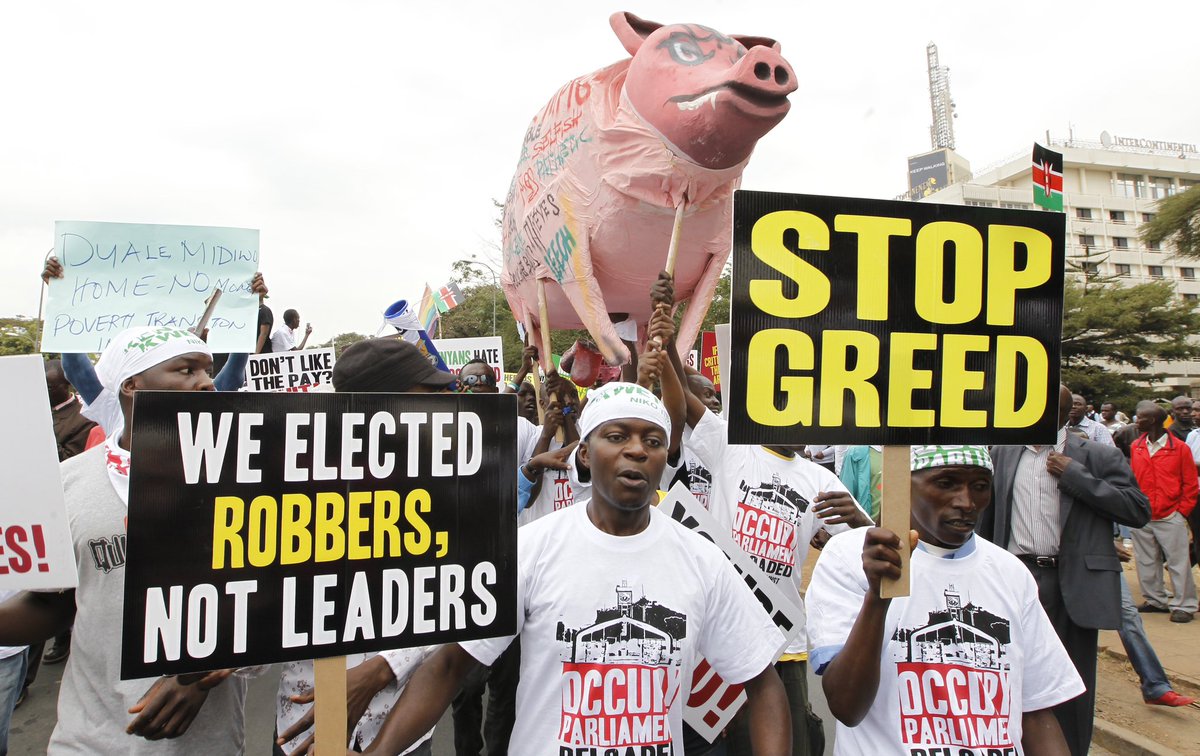Imagine a country where the price of bread, a basic food for many families, was set to go up.
That’s what was happening in Kenya, and people were not happy!
They took to the streets, protesting against the government’s plans.
The government, listening to the people’s concerns, decided to change their mind.
They took away the new tax on bread, which had caused so much anger.
But was this enough to calm everyone down?
Did the government do enough to address the other problems that people are facing?
We’ll explore these questions in this article, looking at the protests, the government’s response, and what the future holds for Kenya.
The Bread Tax Backlash: Why Kenyans Took to the Streets
Kenyans were fed up. They were tired of seeing the prices of basic things like food going up and up. When the government decided to add a tax on bread, it was the last straw. Bread is a staple food in Kenya, something everyone eats. So, when the government decided to make it more expensive, people felt like they were being squeezed even harder.
Thousands of people took to the streets. They were shouting and protesting against the government’s decision. They didn’t want to pay more for bread, and they wanted the government to listen to their concerns. It was a massive protest, showing just how angry people were.
This wasn’t just about the price of bread. The people were unhappy with the government’s economic policies. They felt like the government was making life harder for ordinary people, while not doing enough to help them. The protest was a way for them to make their voices heard and demand change.
More Than Bread: The Deeper Issues Fueling the Protests
The protests in Kenya weren’t just about the price of bread. They were a sign of something much bigger: people were angry about the cost of living, which was getting higher and higher.
Many Kenyans felt that the government wasn’t listening to their concerns about the economy. They felt that the government wasn’t doing enough to help people who were struggling to make ends meet.
The protests showed how important it is for governments to listen to their people. People need to feel like they have a voice and that the government is working for them.
Government’s Concessions: A Step Towards Reconciliation?
The Kenyan government’s decision to scrap the bread tax, a major demand from protesters, is being seen as a move towards reconciliation. This is a step towards soothing the anger that has been bubbling over in the country due to the rising cost of living. The government’s response to these protests shows their understanding of the public’s frustration and their desire to address the concerns raised.
The removal of the tax on bread, a staple food for many Kenyans, was a significant concession by the government. It demonstrates a willingness to listen to the people and to address their needs. However, some critics argue that this is just a temporary solution and that more concrete actions are needed to address the root causes of the economic challenges facing Kenya.
The government’s actions are being watched closely by many Kenyans. They want to see if this is a genuine attempt to resolve the issues or just a tactic to quell the protests. The future will reveal whether these concessions will be enough to calm the anger and lead to a more stable and prosperous future for Kenya.
The Unsettled Future: What’s Next for Kenya?
The dust has settled on the bread tax protests, but the air in Kenya is thick with uncertainty. Did the government’s decision to back down on the tax, along with other concessions, calm the angry citizens? Or is this just a temporary pause before another wave of discontent explodes? It’s a question that hangs heavy in the air, as Kenyans and the world watch to see what comes next.
The protests were a loud outcry from Kenyans who felt the government wasn’t listening to their struggles. The tax on bread, a staple food for many, was seen as the final straw, pushing many to the breaking point. But the government’s response, while a step in the right direction, doesn’t address the root of the problem: the rising cost of living and the feeling that many Kenyans are being left behind.
The future of Kenya is now a tightrope walk. Will the government truly address the concerns of its people, or will the recent concessions be seen as temporary fixes? The answer, it seems, lies in the coming days and weeks, as Kenyans continue to watch and wait, hoping for a future that is brighter and more prosperous for all.
The Kenyan government’s decision to scrap the bread tax after protests has eased some tensions, but the question remains: is it enough to calm the anger?
Many Kenyans felt the bread tax was just the tip of the iceberg, and they continue to demand changes to address the high cost of living and other issues.
The protests, while showing the power of the people, also highlighted the deep divisions and economic challenges facing the nation.
Whether the recent changes will be enough to truly address these concerns, or whether further protests will erupt, remains to be seen. Kenya is at a crossroads, and its future depends on finding solutions that benefit everyone.
